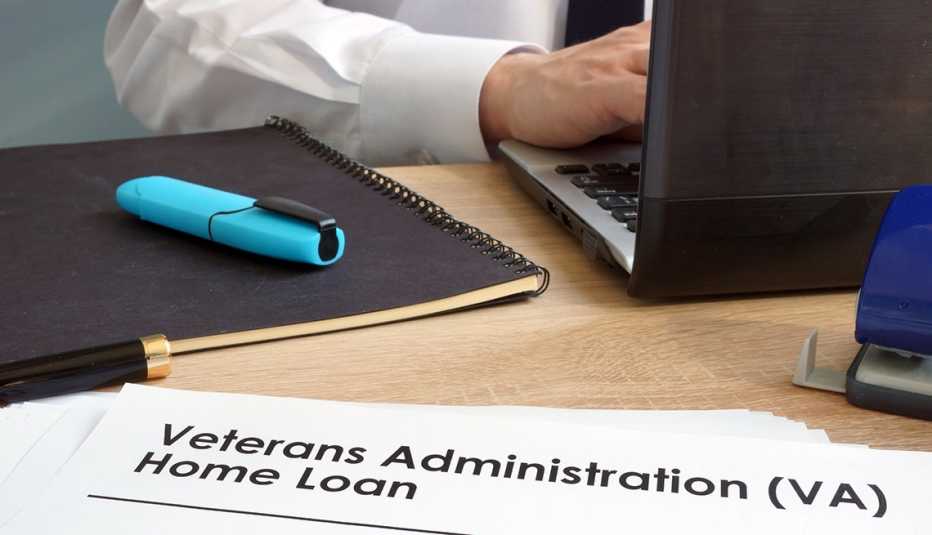Staying Fit


Widowed spouses and other survivors of military veterans typically become acquainted with the Department of Veterans Affairs (VA) during one of the most challenging periods in their lives, following the loss of a veteran.
Jim Marszalek, national service director for Disabled American Veterans, is familiar with the problem. He says that even though the VA conducts classes for service members before they leave the military to become acquainted with benefits, many service members are focused on immediate concerns, not on benefits that might help them and their families in the future.


AARP Membership— $12 for your first year when you sign up for Automatic Renewal
Get instant access to members-only products and hundreds of discounts, a free second membership, and a subscription to AARP the Magazine.
“When you get out, it’s stressful. You want to look for a job and move on,’’ he says.
For example, a widow was attempting to claim a state property tax break that was designed to help veterans and their survivors, but there was a problem. To qualify, she needed proof that her husband had been totally disabled, but her husband had never applied to VA for a total disability rating before he died.
Plus, Marszalek says, many benefits hinge on having a condition that the VA labels a disability, and “there’s a stigma associated with disability.” Such feelings, combined with the complicated rules involved in qualifying for benefit programs, often mean that survivors of veterans end up missing out on benefits they deserve.
For key insights on survivor benefits, we spoke with Kevin Friel, deputy director of pension and fiduciary service at the VA and Garrett Schmidt, a management and program analyst at the department.
Health and education benefits for military families
- Civilian Health and Medical Program of the Department of Veterans Affairs and other health assistance programs can provide care to military families.
- Scholarships, grants and GI Bill transfer make higher education and vocational training more accessible.
Compensation for survivors, spouses and dependents
- Dependency and Indemnity Compensation.
- Accrued benefits.
- Survivors pension.
- Burial benefits.
- Home loan benefits.
1. Health care
A valuable benefit available to eligible survivors is comprehensive health coverage from the Civilian Health and Medical Program of the Department of Veterans Affairs (CHAMPVA). Under this program, the VA shares the cost of most health care services and medical supplies that it considers necessary for eligible surviving spouses and children. In most cases, eligibility for the coverage applies to survivors of veterans who were totally disabled or who died from a VA rated service connected disability.
Comprehensive health coverage is also available under the VA’s Spina Bifida Health Care Benefits Program to children of Vietnam veterans and certain Korean War veterans who have been diagnosed with the condition.
Other limited health coverage is available to survivors from specific stations or service eras. For example, service members, spouses and children who lived at Camp Lejeune in North Carolina between August 1953 and 1987 can be reimbursed for certain out-of-pocket health care costs because of contaminated drinking water there. The benefit applies to treatment of 15 specific illnesses and medical conditions, including several forms of cancer, infertility and miscarriage.
Another targeted health benefit applies to children with certain birth defects who were born to female Vietnam veterans. The Children of Women Vietnam Veterans Health Care Benefits Program (CWVV) covers services necessary for treatment of the covered birth defect and associated medical conditions.
2. Education and training
Substantial financial help is available for survivors of service members interested in pursuing education or vocational training. The government, in some cases, will pay all or a large part of tuition costs for college and other educational programs.
Two key programs that eligible surviving spouses and children should explore are the Fry Scholarship and Survivors' and Dependents' Educational Assistance (DEA).


































































More From AARP
Black Veterans Less Likely to Be Approved for VA Disability Claims
Veterans Affairs secretary vows to address the gap found in a new GAO reportVA Caregiver Benefit Moving to Direct Deposit Only
Deadline to enroll is Oct. 1, before the VA stops sending paper checks
AARP Poll Reveals Veterans Susceptible to PACT Act Fraud
Veterans who don’t know claims can be filed for free may be more vulnerable to scams